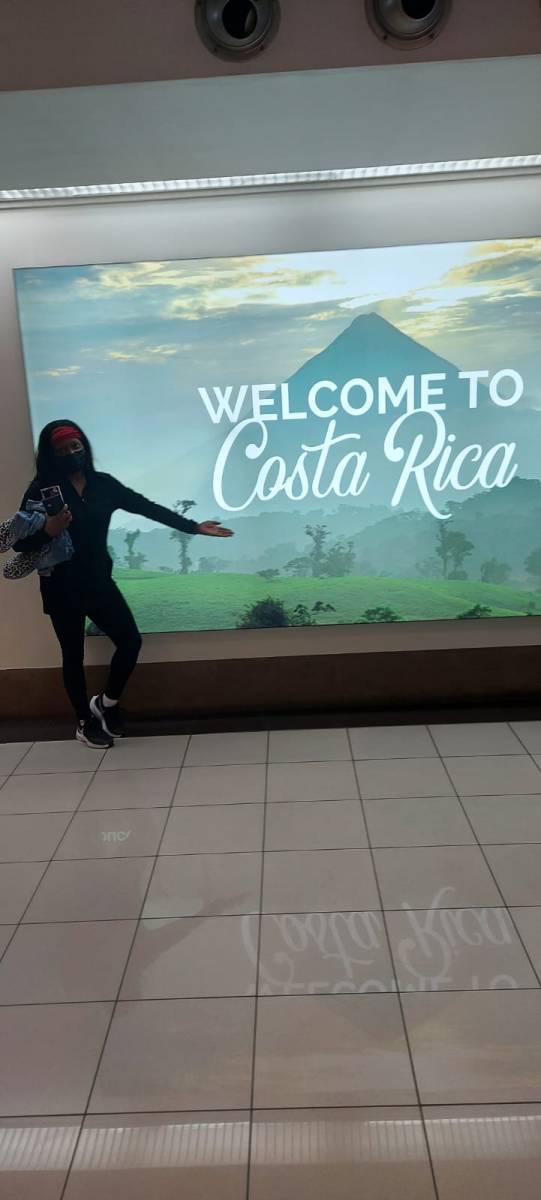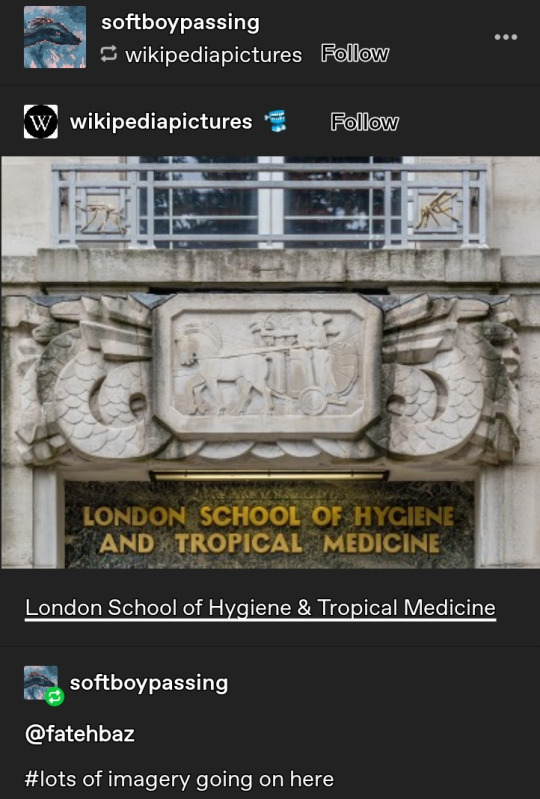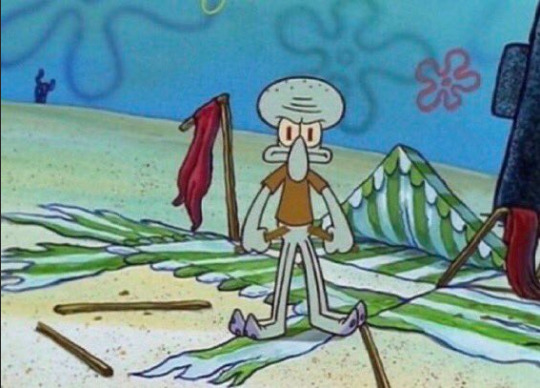#English in Costa Rica
Text
The Big Move to Costa Rica
The Big Move to Costa Rica
July 9 was move day. With all the negative experiences people have been sharing about the airlines lately, it was a big concern. My flight had been changed prior from a PHL departure and short layover in Miami to a layover in Boston, then a longer layover in Miami with a next day arrival. This was not acceptable so I cancelled that flight on Jet Blue and rebooked another on United, non-stop to…

View On WordPress
#Apostille#Costa Rica Airport#English in Costa Rica#expat in costa rica#Moving to Costa Rica#teaching in Costa Rica#United Airlines baggage
0 notes
Text
wish i would practice my spanish more but idk what spanish media to get into and i'm terrified of speaking to others even in a practice setting
#i have some auditory processing issues so i really struggle w ppl's accents even in english#and my anxiety makes it worse#when i studied in costa rica i either got ppl saying ''oh your spanish is good!!'' or switching to english bc i was struggling 😭#and it was mostly dependent on whether they enunciated or slurred their words#my spanish is at its best when i'm tipsy-drunk... bc i stop being self-conscious#i forgot my wallet at a bar one night and had to get an uber and the driver and i chatted and he complimented my spanish#and in my head i was like yeah that's the confidence elixir fhskfhdk#also i'm told i speak v v formally which makes sense bc most of my courses were literature courses#oh did reading excerpts from el cantar de mio cid not help my conversational spanish?
6 notes
·
View notes
Text
whoever named costa rica as such was so right. the coast is so tasty.
10 notes
·
View notes
Text








Costa Rica was a treat 👌🏾😍🌴🇨🇷
#costa rica#pura vida#canada#trip#international#baecation#vacation#happy#love#islands#tropics#spanish#english#french
2 notes
·
View notes
Text
I think “tsukasa cusses (said fuck in law evading rock)” and “Tsukasa does not cuss (feels like he needs to set a good example)” can coexist actually. Tsukasa cusses around ppl his age + nene (she wore him down by bullying him) and emu (after the 9000th jumpscare she subjected him to in the first month of knowing him he gave up) but if they’re saki’s age or younger he’s like I need to be a big brother/be responsible and set a good example as a future star.
#crucially saki does cuss she just knows she can’t do it in front of tsukasa because he’ll act like he’s just been shot#and go where did you learn that… you’re too young…#(saki having a flashback to tsukasa stubbing his toe & loudly saying fuck at age 10) don’t worry about it!!#obv this is with an English lens I’m not familiar enough w Japanese curse words#although I do know there’s a tendency to borrow English curse words and they’re viewed as less severe#and Japan has more of a rude grammar thing and not a rude words thing#fascinating to learn abt how many English curse words don’t really have an equivalent just bc cultural differences#like the western emphasis on paternal line -> bastard as a swear word isn’t really a thing in jpn iirc#jpn sonic cartoon said English curse words because they’re not viewed as super severe#+ iirc places like Costa Rica have a large amount of younger ppl who use English swear words bc their parents don’t know what it means
3 notes
·
View notes
Text
I’ve been slapped in the face by hubris. I’m gonna read Honduras in Spanish. And Nicaragua too
#Nicaragua is poetry so doable#Honduras is a novel AND I have an English option that I could go for but#since I pussied out of Costa Rica and am trying to order the German translation…. 😂#I gotta make up for it#and Honduras seems readable for my Spanish level#which is a small miracle man the Latin American authors all speak in riddles! 😂#shut up Sam
4 notes
·
View notes
Text
It’s funny and i love it :)
1 note
·
View note
Text




#movie#película#pelicula#documentary#documental#animation#japanese#portuguese#english#español#costa rica#brasil#mexico#japon#japan
4 notes
·
View notes
Text
my friend and I are losing our minds and applying to summer jobs three provinces over
#rev rambles#I'm literally also abt to apply to teach english to kids in costa rica#bc if I can't find a job here......... I will literally go wherever
0 notes
Text

Meléndez & Bonilla Law Firm is the full service law firm that provides many legal services - immigration, real estate, marriage, divorce, corporations, retirement, and residency. Contact us for attorney in Costa Rica english.
0 notes
Text
Ricky Martin - La Bomba
1998
Puerto Rican singer-songwriter Ricky Martin began his musical career at twelve as a member of Puerto Rican boyband Menudo. His solo career started in 1991, and his third album, A Medio Vivir (1995), helped him rise to prominence in European countries.
"La Bomba" was the third single from his fourth studio album, Vuelve (1998). The album earned Martin his first Grammy Award. The song's title, which translates to "the Bomb" in English, is derived from the Afro-Puerto Rican dance music of the same name. Lyrically, it is a metaphor in which Martin compares the bomba music "to a drink that makes you drunk; the listener is high from the rhythm of the dance".
"La Bomba" is one of Martin's most commercially successful songs in his career. It was a top-five hit in Central American countries, including Costa Rica, El Salvador, Guatemala, and Nicaragua. The song peaked at number 27 on the US Billboard Hot Latin Tracks chart while in the same week, the song peaked at numbers 11 and 13 on Billboard's Latin Pop Songs and Tropical/Salsa charts, respectively. In Spain, it reached number five, giving Martin his second top-five hit in the country, following his 1998 chart-topper hit, "La Copa de la Vida". "La Bomba" also peaked in the top 40 of several non Spanish-speaking countries, such as Australia and Sweden. It won the award for Best Danceable Tune at the 1999 Premios Eres.
"La Bomba" received a total of 85,3% yes votes!
youtube
875 notes
·
View notes
Text
you don't know stress until ur in an uber in a different country and u can't speak the language so ur trying to desperately use hand signals
#im in costa rica rn and ive never not regretted not taking Spanish in high school#luckily my sister knows a bit and a lot of people speak a bit of english but still#i know very basic words and thats it#mine
0 notes
Note
have any dilf billy and stu hcs?
HELLO YES for sure I do.
a lot of this is actually based on something matthew lillard said in an interview, about what he thinks billy and stu would do if they survived. if you want to skip right to the bit I'm talking about, it's at 12:40 in the video.
to sum it up for anyone who doesn't feel like watching it: billy and stu survive, fall in love, move to costa rica where stu works at panasonic (lol) and billy is an english teacher, and on the side they take in stray dogs and rehabilitate them.
I thought this idea was really cute (I'm even drawing some fanart of it at the moment 👀), so I've kind of just adopted it as my own canon lol, with some of my own bits added in.
lillard half-jokingly says "they slaughter people on the weekends," and I do agree that they'd probably never quit the whole murdering thing even as fugitives. but given that they've otherwise been pretty softened in this imagining, I wonder if their motives for killing would be less out of self proclaimed psychopathy and more of a moral gray. idk, maybe since they evidently have a soft spot for animals, maybe they kill animal abusers, or something. or maybe they really don't ever give up the whole slasher thing, taking on a new identity (or even revitalizing the character of ghostface, using some sort of knock off mask) and haunting a lakeside cabin resort or something. idk! just interesting things to think about. lmk what you guys think ^_^
#matthew lillard was crazy for saying this btw.#i really cannot believe this fucking clip is real#asks#headcanon asks#scream#scream movie#scream 1996#stu macher#billy loomis#billy x stu#stu x billy#billystu#stuilly
57 notes
·
View notes
Text
Best Curse Word Tournament!
what the frick frack diddily dack patty wack snick snack crack pack slack mack quarterback crackerjack biofeedback backtrack thumbtack sidetrack tic-tac (English)
/wɒt ðə frɪk fræk ˈdɪdli dæk ˈpæti wæk snɪk snæk kræk pæk slæk mæk ˈkwɔːtəbæk krækərdʒæk ˌbaɪoʊˈfidˌbæk ˈbæktræk ˈθʌmtæk ˈsaɪdtræk tɪk-tæk/
a censored and long way to say “what the fuck”
cabrón (Spanish)
/kaˈbɾon/
1. (depending on region) a coward, bastard, motherfucker, pimp, cuckold
2. (specific to Mexico, Puerto Rico, Costa Rica) dude or mate; a term of endearment between friends
#cabrón#what the frick frack diddily dack patty wack snick snack crack pack slack mack quarterback crackerjack biofeedback backtrack thumbtack side#polls#curse words#season 1 round 2
193 notes
·
View notes
Text
hi to anyone reading, i hope you're having a good day!
after months of being stuck from doing anything (my 2024 starts just now;;) i've finally decided to post the progress of my academic and mental healing
i failed my dream college entrance exam due to my mental health last year, so I'm currently studying to retake it this year while also trying to be kind to myself. i'm also taking a humanities course so i can skip some subjects once i get in.
⚠️ i'll be pretty much making 2023 as my biggest regret, english isn't my first language and i struggle talking to others, but if we're moots i'll do my best to support you as much as i can! 💐
🪷 about me
you can call me owen/wen!
i want to be an illustrator, currently aiming for graphic design and many more creative things (photography, animation, 3d modeling, i can't choose)
i'm from Costa Rica
🪷 interests
i'm quite proud of my music taste, it has a bit of everything (i listen to nct, zb1, skz, arca, kali uchis, brutalismus3000, zheani, korn,...)
reading (manga, danmei, ao3, also classics though)
crime & mental health podcasts
🪷 goals
believing in myself again, beat procrastination, studying and working before indulging in things that ruin my future, and just be a bit happier and proud of myself. ☀️
29 notes
·
View notes
Text

"defending civilization against bugs"
lol the mosquito sculpture

---
Sir Ronald Ross had just returned from an expedition to Sierra Leone. The British doctor had been leading efforts to tackle the malaria that so often killed English colonists in the country, and in December 1899 he gave a lecture to the Liverpool Chamber of Commerce [...]. [H]e argued that "in the coming century, the success of imperialism will depend largely upon success with the microscope."
Text by: Rohan Deb Roy. "Decolonise science - time to end another imperial era." The Conversation. 5 April 2018.
---
[A]s [...] Diane Nelson explains: The creation of transportation infrastructure such as canals and railroads, the deployment of armies, and the clearing of ground to plant tropical products all had to confront [...] microbial resistance. The French, British, and US raced to find a cure for malaria [...]. One French colonial official complained in 1908: “fever and dysentery are the ‘generals’ that defend hot countries against our incursions and prevent us from replacing the aborigines that we have to make use of.” [...] [T]ropical medicine was assigned the role of a “counterinsurgent field.” [...] [T]he discovery of mosquitoes as malaria and yellow fever carriers reawakened long-cherished plans such as the construction of the Panama Canal (1904–1914) [...]. In 1916, the director of the US Bureau of Entomology and longtime general secretary of the American Association for the Advancement of Science rejoiced at this success as “an object lesson for the sanitarians of the world” -- it demonstrated “that it is possible for the white race to live healthfully in the tropics.” As Timothy Mitchell writes: “In 1915, the year after the canal’s completion, the newly established Rockefeller Foundation took over the mosquito campaign from the U.S. Army and launched a worldwide program" [...]. The [...] measures to combat dangerous diseases always had the collateral benefit of social pacification. In 1918, George Vincent, president of the Rockefeller Foundation, candidly declared: “For purposes of placating primitive and suspicious peoples, medicine has some decided advantages over machine guns." The construction of the Panama Canal [...] advanced the military expansion of the United States in the Caribbean.
Text by: Fahim Amir. "Cloudy Swords." e-flux Journal Issue #115. February 2021.
---
Richard P. Strong [had been] recently appointed director of Harvard’s new Department of Tropical Medicine [...]. In 1914, just one year after the creation of Harvard’s Department of Tropical Medicine, Strong took on an additional assignment that cemented the ties between his department and American business interests abroad. As newly appointed director of the Laboratories of the Hospitals and of Research Work of United Fruit Company, he set sail in July 1914 to United Fruit plantations in Cuba, Guatemala, Honduras, Costa Rica, and Panama. […] As a shareholder in two British rubber plantations, [...] Strong approached Harvey Firestone, chief executive of the tire and rubber-processing conglomerate that bore his name, in December 1925 with a proposal to conduct an extensive biological and medical survey of the interior region of Liberia. Strong found a receptive ear. Firestone had negotiated tentative agreements in 1925 with the Liberian government for [...] a 99-year concession to optionally lease up to a million acres of Liberian land for rubber plantations. [...]
Nearly all of the [Harvard tropical medicine] department’s expeditions were to industrial plantations in the making. […] [I]nfluenced by the recommendations and financial backing of Harvard alumni such as Philippine governor Gen. William Cameron Forbes and patrons such as Edward Atkins, who were making their wealth in the banana and sugarcane industries, Harvard hired Strong, then head of the Philippine Bureau of Science’s Biological Laboratory, and personal physician to Forbes, to establish the second Department of Tropical Medicine in the United States [...].
Strong and Forbes both left Manila for Boston in 1913. Strong began assembling a team of researchers and a course of instruction to take advantage of the increasing overseas presence of US firms. Forbes became an overseer to Harvard University and a director of United Fruit Company, the agricultural products marketing conglomerate best known for its extensive holdings of banana plantations throughout Central America. […] In 1912 United Fruit controlled over 300,000 acres of land in the tropics [...] and a ready supply of [...] samples taken from the company’s hospitals and surrounding plantations, Strong boasted that no “tropical school of medicine in the world … had such an asset.” “It is something of a victory for Harvard,” he argued. “We could not for a million dollars procure such advantages.”
Over the next two decades, he established a research funding model reliant on the medical and biological services the Harvard department could provide US-based multinational firms in enhancing their overseas production and trade in coffee, bananas, rubber, oil, and other tropical commodities. [...] As the expedition set sail for Monrovia, Strong wrote in his diary that he hoped their efforts would push the United States to “exert a more stimulating influence upon the development of the … country and its people” as it had in the Philippines, Panama, and Puerto Rico. [...] Harvard’s Department of Tropical Medicine was thoroughly entangled in the material relationships – transportation infrastructure, labor regimes, and commodity production – that were instrumental in advancing the interests of firms like United Fruit, Firestone Tire and Rubber Company, and the American Chicle Company as they transformed landscapes across the globe.
Text by: Gregg Mitman. "Forgotten Paths of Empire: Ecology, Disease, and Commerce in the Making of Liberia's Plantation Economy." Environmental History Volume 22 Number 1. January 2017.
#literally that post i made earlier today about frustration of seeing the same colonial institutions and leaders showing up in every story#about plantations and forced labor my first draft i explicitly mentioned the harvard school tropical medicine and kew royal botanic garden#abolition#ecology#imperial#colonial#bugs#indigenous#multispecies
80 notes
·
View notes